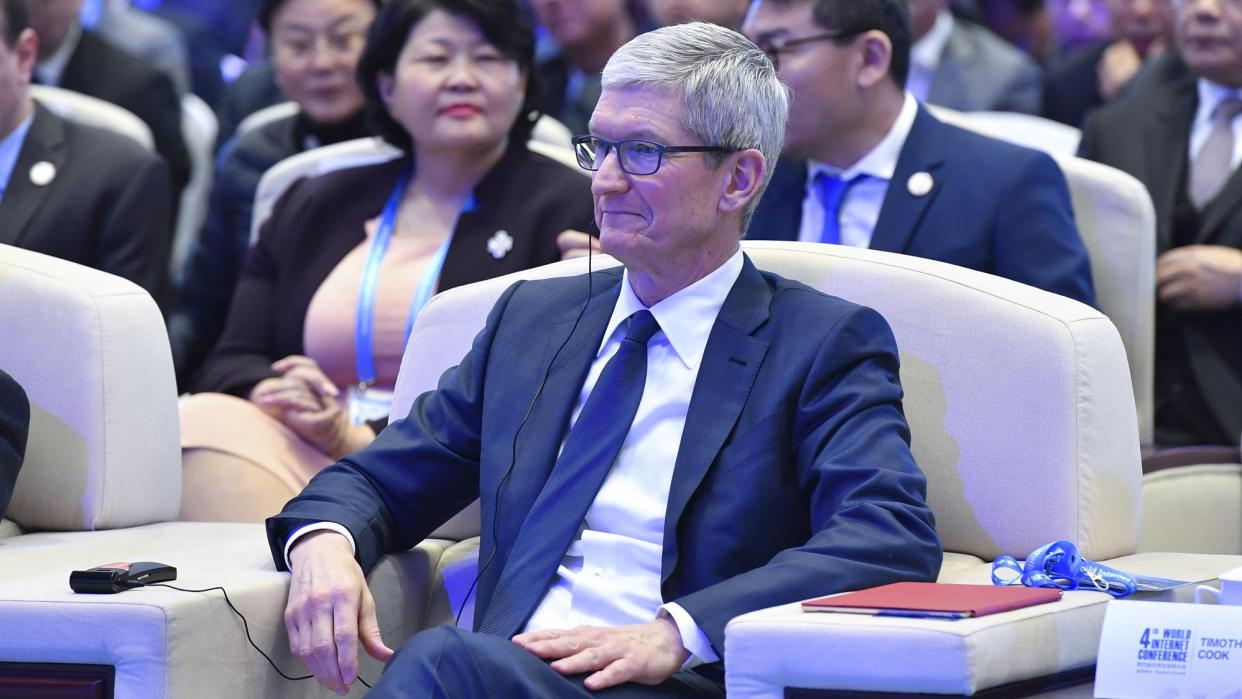China Reasserts Cyber Sovereignty Policy as Google Pleads for Better Access

Apple’s Tim Cook and Google’s Sundar Pichai were in attendance this weekend at the World Internet Conference in Wuzhen, China. There, they would have heard Chinese President Xi Jinping, in a letter read to delegates, again reassert the doctrine of cyber sovereignty, the idea that each country has the right to govern the Internet how it likes within its own borders.
Xi said the world should respect that sovereignty, foster a spirit of partnership, advance development, safeguard security, participate in governance, and share the benefits. “Building a community of common future in cyberspace has increasingly become the widespread common understanding of international society,” he said. “China’s door to the world will never close, but will only open wider.”
China this year codified the concept of cyber sovereignty into law. These and earlier rules have kept many prominent Western tech companies from operating in China, or severely crimped their operations in the Middle Kingdom. Facebook, Twitter and Netflix are all banished. Google pulled its search operations out of China in 2010, and its YouTube and Gmail programs are no longer accessible from within China. Crypto-currency Bitcoin is also banned.
Pichai is understood to have made a pitch for Google to be allowed to return to China. “A lot of work Google does is to help Chinese companies,” he said, according to reports from the conference. “Many small and medium-sized businesses in China take advantage of Google to get their products to many other countries outside of China.”
Pihai’s plea, plus similar lobbying by Facebook’s Mark Zuckerberg, come as China’s homegrown tech giants are increasingly becoming forces overseas and as the tech sector pursues machine learning, 5G communications and the Internet of Things.
China’s Alibaba is increasingly a competitor with U.S.-based Amazon on fronts that range from home shopping to cloud computing. Driven by an ecosystem that spans games, music and messaging, China’s Tencent now approaches Facebook in terms of market capitalization. And Baidu positions itself as a global market leader in artificial intelligence and driver-less cars, rivaling Google, among others.
Western companies have complained that they are not allowed access to Chinese markets and customers while Chinese companies can operate freely overseas. That potentially puts China in breach of its obligations to the World Trade Organization. But China suggests that cyber sovereignty is a matter of national security, protecting the country from crime and terrorism.
China has been rated as the world’s least free country for the past three years in terms of Internet freedom, according to U.S.-based non-governmental organization Freedom House. Google is a sponsor of Freedom House.
The Chinese tech companies largely comply with national rules that permit Chinese government access to their servers, require data to be stored in China, and to conduct censorship on behalf of the state.
Governments in other countries, including Pakistan and Turkey, have recently used similar arguments as they shut down services, social media apps, and web pages they are uncomfortable with. Russia recently temporarily blocked Tencent’s WeChat messaging app.
China’s regulation of the Internet has escalated in recent weeks. It has ordered Apple and others to remove downloads for virtual private network downloads from their app stores, outlawed Microsoft’s Skype voice and video messaging service, and effectively disabled Facebook’s encrypted messaging service WhatsApp within China.
Related stories
Australia to Probe Google and Facebook Over Role in Media
China Box Office: 'Coco' Doubles Score in Second Weekend
YouTube Says It Deleted Over 150,000 Kid Videos Targeted by Sex Predators
Subscribe to Variety Newsletters and Email Alerts!

